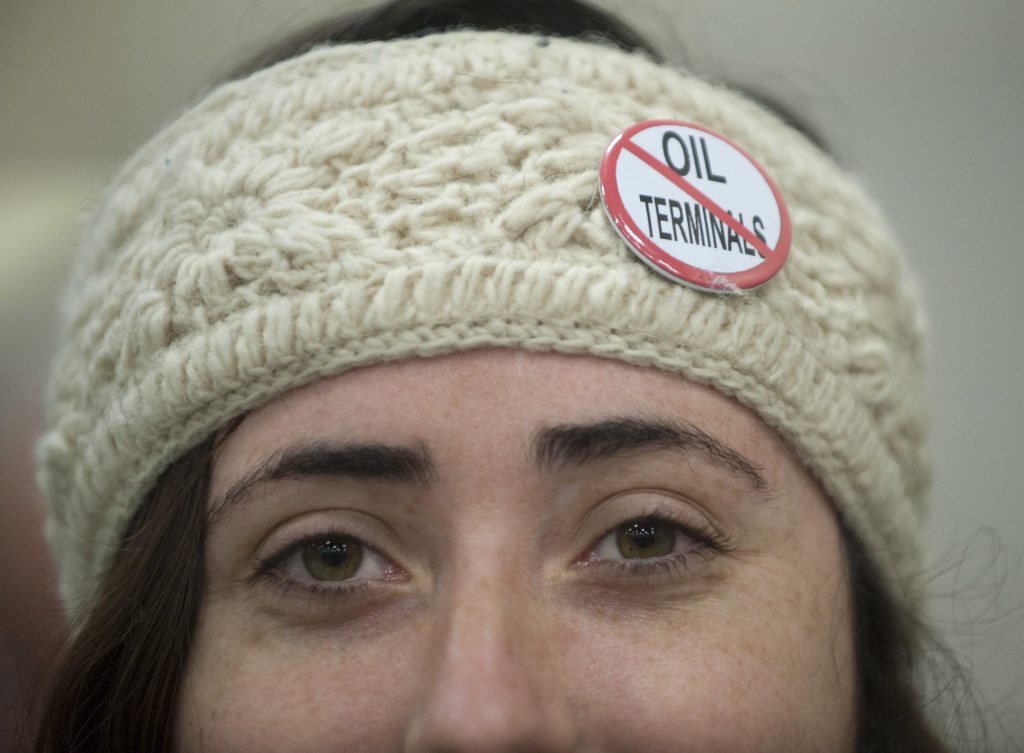In a unanimous vote, the Seattle City Council this week called on state agencies to deny permits for the Vancouver Energy oil terminal along with all other “new fossil fuel infrastructure projects” within the state.
According to the council, the resolution is a step toward the city’s goal to meet the Paris Agreement on reducing greenhouse gas emissions in defiance of President Donald Trump’s rejection of the international accord.
“We need all the support we can get,” Don Steinke, a prominent local climate activist and a regular voice in the opposition of the Vancouver Energy terminal, said of the Seattle council’s vote. “Gov. (Jay) Inslee needs to know that it’s important for the whole state, not just to Vancouver.”
While Seattle’s move is the latest action by a Northwest city against petroleum infrastructure, it’s not the first.
In July, the Vancouver City Council approved a ban on the expansion of existing and new crude oil storage and handling facilities and refineries that average less than 50,000 barrels a day.
The Portland City Council in December passed a zoning ordinance that bans fossil fuel storage facilities larger than 2 million gallons and prohibits existing terminals from expanding.
The proposed Vancouver Energy terminal would be built at the Port of Vancouver. It would be capable of handling an average of 360,000 barrels of oil per day, making it the largest of its kind in the United States.
In addition to the Vancouver Energy terminal, the resolution singled out the proposed methanol refinery in Kalama and asks British Columbia’s government to halt the Kinder Morgan oil pipeline expansion. Finally, it urges Puget Sound Energy to close a coal-fired power plant in Coalstrip, Mont., by 2025.
Lee Newgent, executive secretary of the Washington State Building and Construction Trades Council, said the Seattle City Council is living in an area with a strong economy and reality far from that of the rest of the state.
“It’s really easy to be a critic of energy project when you live in King County where you have light rail, strong public transit and a robust job market. That’s not comparable when you get to Vancouver or Longview or Aberdeen,” he said. “You’ve got to take it into perspective. (The council) supports a tax on sweetened beverages, is trying to do an income tax. … Come on, what’s reality for the rest of the state (compared with) the King County bubble?”
Seattle Councilman Mike O’Brien argued the Southwest Washington projects would boost the state’s contribution to climate change, thus are legitimate statewide concerns. His resolution includes several citywide measures to combat climate change, too.
“From a climate perspective, Seattle is … hopefully going to do more than its part to reduce our emissions to meet the Paris accord and frankly (keep) climate destruction below catastrophic levels,” O’Brien said in an interview with The Daily News of Longview. “Our work is only going to be successful if it’s in conjunction with dozens and hundreds of other cities and jurisdictions.”
O’Brien argued the state should look at other ways to create green jobs in rural Washington instead of relying on the fossil fuel industry.
“It’s not without serious consideration that we think about weighing in on another jurisdiction that’s trying to bring jobs,” he said. “What we don’t want to do is to start whole new generations of people (working) in communities that are totally tied to those fossil fuel companies.”



